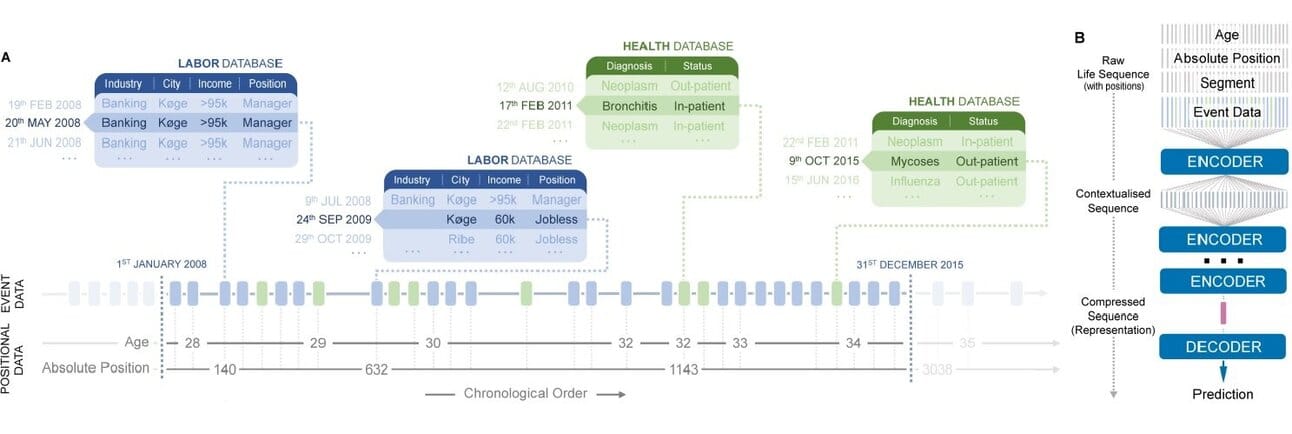Welcome (back) to Powered,
Exploring how AI shapes careers and lives.
IN TODAY’S ISSUE
AI Mimics Human Memory
AI Revolutionizes Grocery Shopping
AI Usage Raises Job Security Concerns
AI Triumphs Over Human in Mental, Physical Duel
AI Predicts Life Events, Study Reveals
AI Mimics Human Memory

Neuroscience News
Researchers have discovered a striking similarity between AI memory processing and human hippocampal functions, crucial for memory consolidation.
Analyzing the Transformer model, a key in AI advancement, they found it mimics the brain's NMDA receptor mechanism.
This breakthrough not only propels AGI development but also deepens our understanding of human memory.
The study paves the way for more efficient, brain-like AI systems, bridging the gap between neuroscience and artificial intelligence.
QUICK LINKS
OpenAI Unveils Framework for AI Risk Management
Gates Predicts 2024 AI Boom
Breakthrough: Human Brain Images Extracted
Accenture CEO: Firms Unprepared for AI Deployment
AI Revolutionizes Grocery Shopping

FOX Business
Instacart introduces smart shopping carts in collaboration with retailers nationwide.
These AI-powered carts enable shoppers to scan items, weigh produce, and monitor costs in real-time.
Customers can also use loyalty accounts for promotions.
The Caper Cart, powered by Caper AI, aims for personalization by recognizing shopping habits and suggesting products.
Amazon and other stores are also venturing into smart carts, revolutionizing the grocery shopping experience for efficiency and convenience.
AI Usage Raises Job Security Concerns

CNBC
A CNBC survey reveals that 72% of workers using AI at work find it boosts productivity.
Gen Z and millennials lead in AI adoption, while concerns about job security rise with increased AI use.
Workers making under $50,000 annually are more worried (47%) than those earning more.
The survey suggests a correlation: the more employees use AI, the more they worry about job impact.
Experts suggest AI will transform rather than eliminate jobs, emphasizing the need to view change as progress and adapt to new skills.
AI Triumphs Over Human in Mental, Physical Duel

Euro News
For the first time, an AI robot, named CyberRunner, has outperformed humans in a physical and mental labyrinth game at ETH Zurich University.
Using robot hands to control knobs and navigate a maze, the AI learned from mistakes and even attempted to cheat.
It completed the task in six hours, surpassing human performance.
The project, open-sourced by researchers, emphasizes real-world machine learning and offers an affordable opportunity for AI research, fostering large-scale experiments and global engagement.
AI Predicts Life Events, Study Reveals

Tech Xplore
Researchers from DTU, University of Copenhagen, ITU, and Northeastern University demonstrate that an AI model, called life2vec, can predict events in people's lives, including estimating the time of death.
Analyzing health and labor market data for 6 million Danes, the model, based on transformer models, outperforms other neural networks.
The study raises ethical concerns about data privacy and bias, emphasizing the need for a democratic conversation on the implications of such technology.
Future developments may include incorporating text, images, and social connections for a more comprehensive analysis.
That’s a wrap for today…
Thanks for reading!
If you want to sign up for this newsletter and receive future issues directly in your inbox, simply click here.
Want to share this newsletter with a friend or colleague via text, social media, or email? Just copy and paste this link: powered.beehiiv.com
Until next time,

